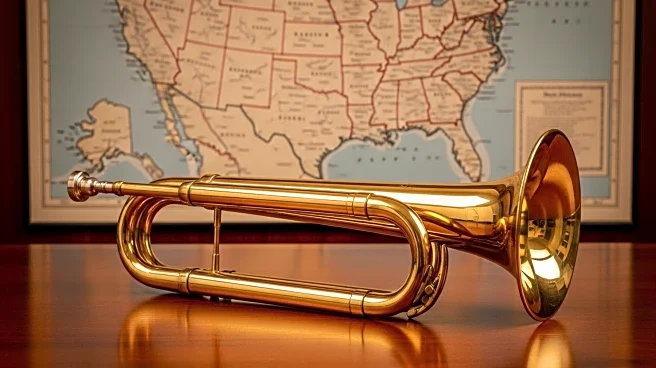What's Happening?
The Chicago Tribune has compiled a list of instances where U.S. presidents have deployed military forces domestically, focusing on the National Guard's role in civil rights struggles and other significant events. The article highlights key moments such as President Dwight Eisenhower's deployment of troops to Little Rock, Arkansas, in 1957 to enforce school desegregation, and President John F. Kennedy's federalization of the Alabama National Guard in 1963 to ensure the integration of the University of Alabama. Other notable events include the deployment of troops during the Detroit riots in 1967 and the Chicago riots following Martin Luther King Jr.'s assassination in 1968. The article provides historical context for these deployments, emphasizing their impact on civil rights and social order.
Why It's Important?
The historical analysis of military deployments within the U.S. underscores the complex relationship between federal authority and civil rights. These instances reflect the government's role in enforcing civil rights legislation and maintaining social order during periods of unrest. The deployments often occurred during pivotal moments in U.S. history, shaping the trajectory of civil rights and influencing public policy. Understanding these events provides insight into the challenges of balancing state and federal power, particularly in addressing social and racial issues. The article highlights the ongoing relevance of these historical precedents in contemporary discussions about federal intervention and civil rights.
What's Next?
The historical context provided by the Chicago Tribune may inform current debates about the use of military force in domestic settings, particularly in light of recent events involving National Guard deployments. Policymakers and civil rights advocates may draw on these historical examples to argue for or against federal intervention in local matters. The analysis could also influence future legislative and judicial decisions regarding the balance of power between state and federal authorities, especially in areas related to civil rights and social justice.
Beyond the Headlines
The examination of past military deployments domestically reveals deeper ethical and legal questions about the use of force in civil rights enforcement. These historical events highlight the tension between maintaining social order and protecting individual rights, raising questions about the appropriate role of the military in domestic affairs. The analysis also prompts reflection on the long-term impacts of these interventions on race relations and governance in the U.S., offering lessons for contemporary policymakers and civil society groups.











